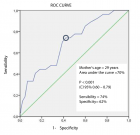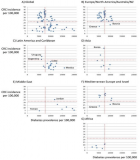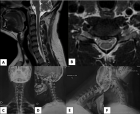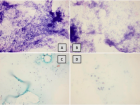Abstract
Research Article
Assessment of knowledge of acute kidney injury among non-nephrology healthcare workers in North-Kivu Province, Democratic Republic of the Congo
Charles Kangitsi Kahindo, Olivier Mukuku*, Stanis Okitotsho Wembonyama and Zacharie Kibendelwa Tsongo
Published: 06 April, 2022 | Volume 6 - Issue 1 | Pages: 030-035
Background: Assessment of knowledge of acute kidney injury (AKI) among healthcare workers (HCWs) is necessary to identify areas of deficiency and key topics to focus on while organizing educational programs to improve AKI care. The objective of this study was to assess AKI knowledge and practice among health care providers in North Kivu province, the eastern Democratic Republic of the Congo.
Material and methods: This was a cross-sectional study conducted in six public hospitals in North Kivu province using a self-administered questionnaire.
Results: A total of 158 HCWs completed the survey, among them 66 (41.78%) were physicians. The mean age of respondents was 36.07 ± 10.16 years and the male gender was 56.33%. Only 12 (7.59%) of the respondents had a good knowledge of the definition and classification of AKI. The respondents’ mean scores were 6.76 out of a total of 18 about risk factors for AKI and 6.29 out of a total of 11 with regard to nephrotoxic drugs. Regarding practices, 28.48% of the respondents assess the risk of AKI in their patients in their daily practices; 31.65% report AKI in the patients’ medical history, and 33.54% call on a nephrologist specialist to get specialized advice.
Conclusion: This study found considerable gaps in knowledge and practice regarding AKI among most of HCWs in North Kivu province.
Read Full Article HTML DOI: 10.29328/journal.jcn.1001087 Cite this Article Read Full Article PDF
Keywords:
Acute renal failure; Knowledge; Practices; Health care workers
References
- Ali SM, Badi S, Yousef BA. Physicians’ knowledge and practice with regard to acute kidney injury at Omdurman Military Hospital: A cross‑sectional survey. Int J Health Allied Sci. 2020; 9: 39-39.
- Nimkar A, Naaraayan A, Hasan A, Pant S, Durdevic M, et al. Incidence and risk factors for acute kidney injury and its effect on mortality in patients hospitalized from Covid-19. Mayo Clin Proc Innov Qual Outcomes. 2020; 4: 687-695. PubMed: https://pubmed.ncbi.nlm.nih.gov/32838205/
- Thongprayoon C, Hansrivijit P, Kovvuru K, Kanduri SR, Torres-Ortiz A, et al. Diagnostics, risk factors, treatment and outcomes of acute kidney injury in a new paradigm. J Clin Med. 2020; 9: 1104. PubMed: https://pubmed.ncbi.nlm.nih.gov/32294894/
- Oates T, Moochhala S. Recognition and management of acute kidney injury. Prescriber. 2017; 28: 17-21.
- Olowu WA, Niang A, Osafo C, Ashuntantang G, Arogundade FA, et al. Outcomes of acute kidney injury in children and adults in sub-Saharan Africa: a systematic review. Lancet Glob Health. 2016; 4: e242-e250. PubMed: https://pubmed.ncbi.nlm.nih.gov/27013312/
- Cerdá J, Mohan S, Garcia-Garcia G, Jha V, Samavedam S, et al. Acute kidney injury recognition in low-and middle-income countries. Kidney Int Rep. 2017; 2: 530-543. PubMed: https://pubmed.ncbi.nlm.nih.gov/29034358/
- Kher V, Srisawat N, Noiri E, Gharbi MB, Shetty MS, et al. Prevention and therapy of acute kidney injury in the developing world. Kidney Int Rep. 2017; 2: 544-558. PubMed: https://www.ncbi.nlm.nih.gov/pmc/articles/PMC5720672/
- Liu KD, Forni L, Heung M, Wu VC, Kellum JA, et al. Quality of care for acute kidney disease: current knowledge gaps and future directions. Kidney Int Rep. 2020; 5: 1634-1642. PubMed: https://pubmed.ncbi.nlm.nih.gov/33102955/
- James MT, Hobson CE, Darmon M, Mohan S, Hudson D, et al. Applications for detection of acute kidney injury using electronic medical records and clinical information systems: workgroup statements from the 15th ADQI Consensus Conference. Can J Kidney Health Dis. 2016; 3: 9. PubMed: https://pubmed.ncbi.nlm.nih.gov/26925245/
- Joslin J, Wilson H, Zubli D, Gauge N, Kinirons M, et al. Recognition and management of acute kidney injury in hospitalised patients can be partially improved with the use of a care bundle. Clin Med. 2015; 15: 431. PubMed: https://pubmed.ncbi.nlm.nih.gov/26430180/
- Nascimento RAMD, Assunção MSC, Silva JM, Amendola CP, Carvalho TMD, et al. Nurses’ knowledge to identify early acute kidney injury. Revista da Escola de Enfermagem da USP. 2016; 50: 0399-0404. PubMed: https://pubmed.ncbi.nlm.nih.gov/27556709/
- Igiraneza G, Dusabejambo V, Finklestein FO, Rastegar A. Challenges in the recognition and management of acute kidney injury by hospitals in resource-limited settings. Kidney Int Rep. 2020; 5: 991-999. PubMed: https://pubmed.ncbi.nlm.nih.gov/32647756/
- Lewington AJ, Cerdá J, Mehta RL. Raising awareness of acute kidney injury: a global perspective of a silent killer. Kidney int Rep. 2013; 84: 457-467. PubMed: https://pubmed.ncbi.nlm.nih.gov/23636171/
- Khan IH, Catto GRD, Edward N, Macleod AM. Acute renal failure: factors influencing nephrology referral and outcome. QJM: Int J Med. 1997; 90: 781-785. PubMed: https://pubmed.ncbi.nlm.nih.gov/9536343/
- Adejumo O, Akinbodewa A, Alli O, Olufemi P, Olatunji A. Assessment of knowledge of acute kidney injury among non-nephrology doctors in two government hospitals in Ondo City, Southwest, Nigeria. Ethiop J Health Sci. 2017; 27: 147-154. PubMed: https://pubmed.ncbi.nlm.nih.gov/28579710/
- Evans R, Rudd P, Hemmila U, Dobbie H, Dreyer G. Deficiencies in education and experience in the management of acute kidney injury among Malawian healthcare workers. Malawi Med J. 2015; 27: 101-103. PubMed: https://www.ncbi.nlm.nih.gov/pmc/articles/PMC4688871/
- Abdou FA, Abdou SM. Assessment of Nurses knowledge in the early detection and Management of acute kidney injury in Assuit and Mansoura Main University hospital. J Health Sci Nurs. 2019; 4: 47-60.
- Batouche DD, Benatta NF, Sadaoui L, Okbani R, Mentouri Z. L’insuffisance rénale aiguë post-traumatique chez l’enfant et facteurs prédictifs de sa survenue. Néphrologie Thérapeutique. 2016; 12: 320-321.
- Blayau C. Insuffisance rénale aiguë postopératoire. Le Praticien en Anesthésie Réanimation. 2011; 15: 352-358.
- Davidman M, Olson P, Kohen J, Leither T, Kjellstrand C. Iatrogenic Renal Disease. Arch Int Med.1991; 151: 1809-1812. PubMed: https://pubmed.ncbi.nlm.nih.gov/1888247/
- Izzedine H. Pathologies rénales au cours de l’infection par le VIH. La lettre de l’infectiologue. 2009; 24: 146-156.
- Muniraju TM, Lillicrap MH, Horrocks JL, Fisher JM, Clark RMW, et al. Diagnosis and management of acute kidney injury: deficiencies in the knowledge base of non-specialist, trainee medical staff. Clin Med. 2012; 12: 216-221. PubMed: https://pubmed.ncbi.nlm.nih.gov/22783771/
Figures:
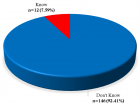
Figure 1
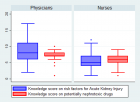
Figure 2
Similar Articles
-
Equine Anti-Thymocyte Globulin (ATGAM) administration in patient with previous rabbit Anti-Thymocyte Globulin (Thymoglobulin) induced serum sickness: A case reportJoseph B Pryor*,Ali J Olyaei,Joseph B Lockridge,Douglas J Norman. Equine Anti-Thymocyte Globulin (ATGAM) administration in patient with previous rabbit Anti-Thymocyte Globulin (Thymoglobulin) induced serum sickness: A case report. . 2018 doi: 10.29328/journal.jcn.1001013; 2: 015-019
-
A case report of Hypocomplementemic urticarial vasculitic syndrome presenting with Renal failureAmy M Hopkins,Angela M Gibbs,Ryan S Griffiths,Rupali S Avasare,Firas G Khoury*. A case report of Hypocomplementemic urticarial vasculitic syndrome presenting with Renal failure. . 2018 doi: 10.29328/journal.jcn.1001017; 2: 039-043
-
Granulomatosis with polyangiitis (GPA) in a 76-year old woman presenting with pulmonary nodule and accelerating acute kidney injuryNoor Sameh Darwich*,Melissa Schnell,L. Nicholas Cossey. Granulomatosis with polyangiitis (GPA) in a 76-year old woman presenting with pulmonary nodule and accelerating acute kidney injury. . 2020 doi: 10.29328/journal.jcn.1001048; 4: 001-006
-
Assessment of knowledge of acute kidney injury among non-nephrology healthcare workers in North-Kivu Province, Democratic Republic of the CongoCharles Kangitsi Kahindo,Olivier Mukuku*,Stanis Okitotsho Wembonyama,Zacharie Kibendelwa Tsongo. Assessment of knowledge of acute kidney injury among non-nephrology healthcare workers in North-Kivu Province, Democratic Republic of the Congo. . 2022 doi: 10.29328/journal.jcn.1001087; 6: 030-035
-
An unusual case of corynebacterium gleum peritonitis in peritoneal dialysisNazzaro Paola*,Baranello Silvana,Brigante Maurizio. An unusual case of corynebacterium gleum peritonitis in peritoneal dialysis. . 2022 doi: 10.29328/journal.jcn.1001095; 6: 083-085
-
Clinical and Epidemiological Profile of Reversible Acute Kidney Injury with Full Recovery: Experience of a Nephrology DepartmentNouha Ben Mahmoud*, Mouna Hamouda, Jihene Maatoug, Meriem Ben Salem, Manel Ben Salah, Ahmed Letaief, Sabra Aloui, Habib Skhiri. Clinical and Epidemiological Profile of Reversible Acute Kidney Injury with Full Recovery: Experience of a Nephrology Department. . 2023 doi: 10.29328/journal.jcn.1001114; 7: 078-084
-
Assessment of the Quality of Life of the Caregiver of Pediatric Patients with Chronic Kidney Disease in a Tertiary Health Care FacilityAsma Hamoud Alruwaili*, Khaled Abdulaziz Alsaran and Abdulaziz Abdullah Alshathri. Assessment of the Quality of Life of the Caregiver of Pediatric Patients with Chronic Kidney Disease in a Tertiary Health Care Facility. . 2024 doi: 10.29328/journal.jcn.1001123; 8: 032-038
-
Transitioning from Pediatric- to Adult-focused Dialysis Care: A Systematic Review with RecommendationsAngelina Dixon*, Cozumel Pruette, Daniel Ranch, Rupesh Raina, Maria Ferris, Weiwen Vivian Shih. Transitioning from Pediatric- to Adult-focused Dialysis Care: A Systematic Review with Recommendations. . 2024 doi: 10.29328/journal.jcn.1001125; 8: 042-049
-
Renal Lymphangiectasia: A Diagnostic and Therapeutic ChallengeMourabiti L*, Allata Y1,2, El Bardai G1,2, Chouhani BA, Kabbali N, Sqalli Houssaini T, Bouabdallah Y, Khattala K, Alaoui O, Boubou M, Hida M, Souilmi FZ. Renal Lymphangiectasia: A Diagnostic and Therapeutic Challenge. . 2024 doi: 10.29328/journal.jcn.1001127; 8: 055-059
-
Renal Adverse Reaction Secondary to Check-point Inhibitors in Metastatic Renal CancerMarta Guerra Lacambra*, Miguel Angel Gonzalez Martinez, Vanesa García Chumillas, Francisco Gutierrez Tejero. Renal Adverse Reaction Secondary to Check-point Inhibitors in Metastatic Renal Cancer. . 2024 doi: 10.29328/journal.jcn.1001130; 8: 076-077
Recently Viewed
-
Atypical Anti-GBM with ANCA Vasculitis- A Rarest of the Rare Entity: Index Case from Eastern IndiaGopambuj Singh Rathod*, Atanu Pal, Pallavi Mahato, Aakash Roy, Debroop Sengupta, Muzzamil Ahmad. Atypical Anti-GBM with ANCA Vasculitis- A Rarest of the Rare Entity: Index Case from Eastern India. J Clini Nephrol. 2024: doi: 10.29328/journal.jcn.1001139; 8: 124-126
-
Gallstone Ileus: A Rare Case of Intestinal Obstruction, Presented in a Chronic Kidney Disease Patient on HaemodialysisPulak Azad*,Yasir Sultan Rizvi,Lakshmi Kant Jha,Pranav Tyagi,Sachin Jain,Twinkle Malik. Gallstone Ileus: A Rare Case of Intestinal Obstruction, Presented in a Chronic Kidney Disease Patient on Haemodialysis. J Clini Nephrol. 2025: doi: 10.29328/journal.jcn.1001149; 9: 027-030
-
A Case of Rapidly Progressive Renal Failure with Unearthed AmyloidosisPulak Azad*,Lakshmi Kant Jha,Yasir Sultan Rizvi,Pranav Tyagi. A Case of Rapidly Progressive Renal Failure with Unearthed Amyloidosis. J Clini Nephrol. 2025: doi: 10.29328/journal.jcn.1001140; 9: 024-026
-
An Adult Case of Beta Thalassemia with Right Ventricular Outflow Tract Tachycardia: A Case ReportPrem AS,Shahanas PS,Praveen Sreekumar*,Ramaswamy NV. An Adult Case of Beta Thalassemia with Right Ventricular Outflow Tract Tachycardia: A Case Report. J Cardiol Cardiovasc Med. 2024: doi: 10.29328/journal.jccm.1001201; 9: 177-179
-
Autoantibodies in Autoimmune Addison’s Disease: Why are they Important?Maria Rosaria De Cagna, Norma Notaristefano, Maurizio Schiavone, Gianluca Palatella, Federica Ranù, Carmela Presicci, Valerio Cecinati, Marilina Tampoia*. Autoantibodies in Autoimmune Addison’s Disease: Why are they Important?. Arch Pathol Clin Res. 2024: doi: 10.29328/journal.apcr.1001042; 8: 012-015
Most Viewed
-
Evaluation of Biostimulants Based on Recovered Protein Hydrolysates from Animal By-products as Plant Growth EnhancersH Pérez-Aguilar*, M Lacruz-Asaro, F Arán-Ais. Evaluation of Biostimulants Based on Recovered Protein Hydrolysates from Animal By-products as Plant Growth Enhancers. J Plant Sci Phytopathol. 2023 doi: 10.29328/journal.jpsp.1001104; 7: 042-047
-
Sinonasal Myxoma Extending into the Orbit in a 4-Year Old: A Case PresentationJulian A Purrinos*, Ramzi Younis. Sinonasal Myxoma Extending into the Orbit in a 4-Year Old: A Case Presentation. Arch Case Rep. 2024 doi: 10.29328/journal.acr.1001099; 8: 075-077
-
Feasibility study of magnetic sensing for detecting single-neuron action potentialsDenis Tonini,Kai Wu,Renata Saha,Jian-Ping Wang*. Feasibility study of magnetic sensing for detecting single-neuron action potentials. Ann Biomed Sci Eng. 2022 doi: 10.29328/journal.abse.1001018; 6: 019-029
-
Pediatric Dysgerminoma: Unveiling a Rare Ovarian TumorFaten Limaiem*, Khalil Saffar, Ahmed Halouani. Pediatric Dysgerminoma: Unveiling a Rare Ovarian Tumor. Arch Case Rep. 2024 doi: 10.29328/journal.acr.1001087; 8: 010-013
-
Physical activity can change the physiological and psychological circumstances during COVID-19 pandemic: A narrative reviewKhashayar Maroufi*. Physical activity can change the physiological and psychological circumstances during COVID-19 pandemic: A narrative review. J Sports Med Ther. 2021 doi: 10.29328/journal.jsmt.1001051; 6: 001-007

HSPI: We're glad you're here. Please click "create a new Query" if you are a new visitor to our website and need further information from us.
If you are already a member of our network and need to keep track of any developments regarding a question you have already submitted, click "take me to my Query."






